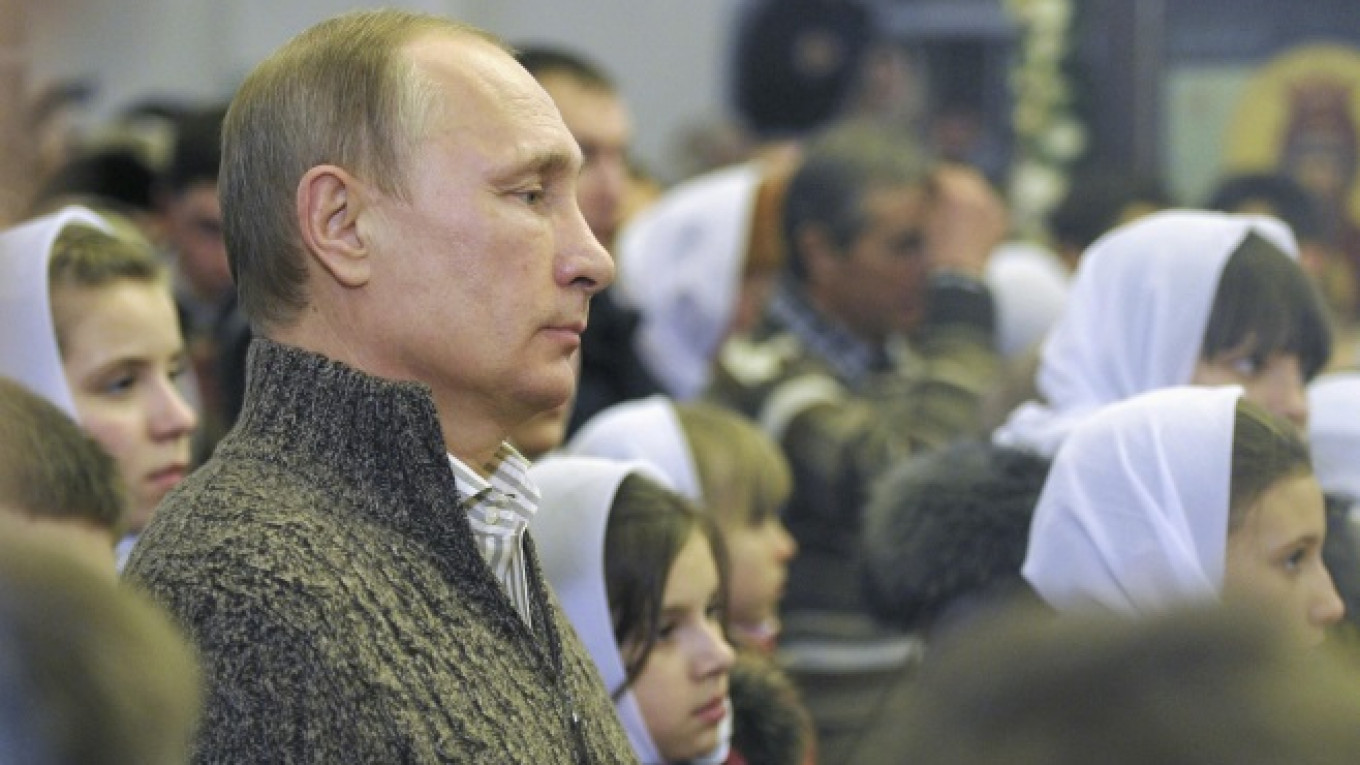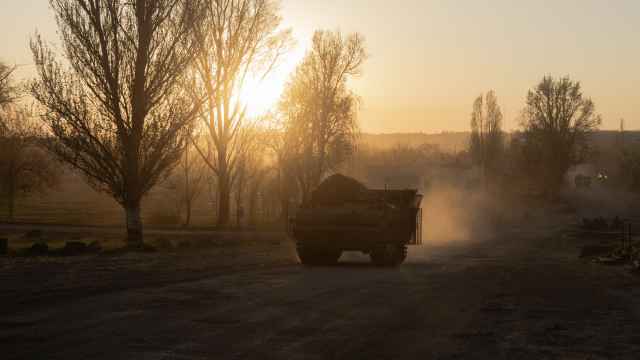The Russian Orthodox Church's Patriarch Kirill prayed for peace in Ukraine and President Vladimir Putin attended mass at a village church in southern Russia, as Russia's Orthodox believers celebrated Christmas on Wednesday.
Russian Orthodox Church holidays are marked according to the old Julian calendar, with Christmas falling on Jan. 7, when it is celebrated by seven out of 10 Russians, according to polls cited by Russian media.
In one of the most high-profile Christmas services, the head of the Russian Orthodox Church, Patriarch Kirill, said a prayer for peace in Ukraine at Moscow's Christ the Savior Cathedral late Tuesday, according to a statement on the church website.
The holiday service was broadcast live by two of Russia's main state-run television networks — Channel One and Rossia 1 — as well as by religious channel Spas.
Putin, for his part, attended a Christmas Eve service at a village church near the southern city of Voronezh and visited an orphanage run by the parish, the Kremlin said in a statement Wednesday.
Russia's Orthodox tradition requires that Christmas be preceded by a 40-day fast, prohibiting meat, eggs or dairy products, and restricting other types of foods. Devout Orthodox believers tend to avoid large-scale feasts on New Year's Eve, but instead gather for a festive dinner on Christmas and then on the eve of the "Old New Year," which begins on Jan. 14 based on the Julian calendar.
Many Russians seem to take a more lenient approach to fasting, but a vast majority, 72 percent, celebrate Orthodox Christmas, according to a recent poll by the All-Russia Fund for Studies of Public Opinion, cited by the TASS news agency.
A Message from The Moscow Times:
Dear readers,
We are facing unprecedented challenges. Russia's Prosecutor General's Office has designated The Moscow Times as an "undesirable" organization, criminalizing our work and putting our staff at risk of prosecution. This follows our earlier unjust labeling as a "foreign agent."
These actions are direct attempts to silence independent journalism in Russia. The authorities claim our work "discredits the decisions of the Russian leadership." We see things differently: we strive to provide accurate, unbiased reporting on Russia.
We, the journalists of The Moscow Times, refuse to be silenced. But to continue our work, we need your help.
Your support, no matter how small, makes a world of difference. If you can, please support us monthly starting from just $2. It's quick to set up, and every contribution makes a significant impact.
By supporting The Moscow Times, you're defending open, independent journalism in the face of repression. Thank you for standing with us.
Remind me later.






